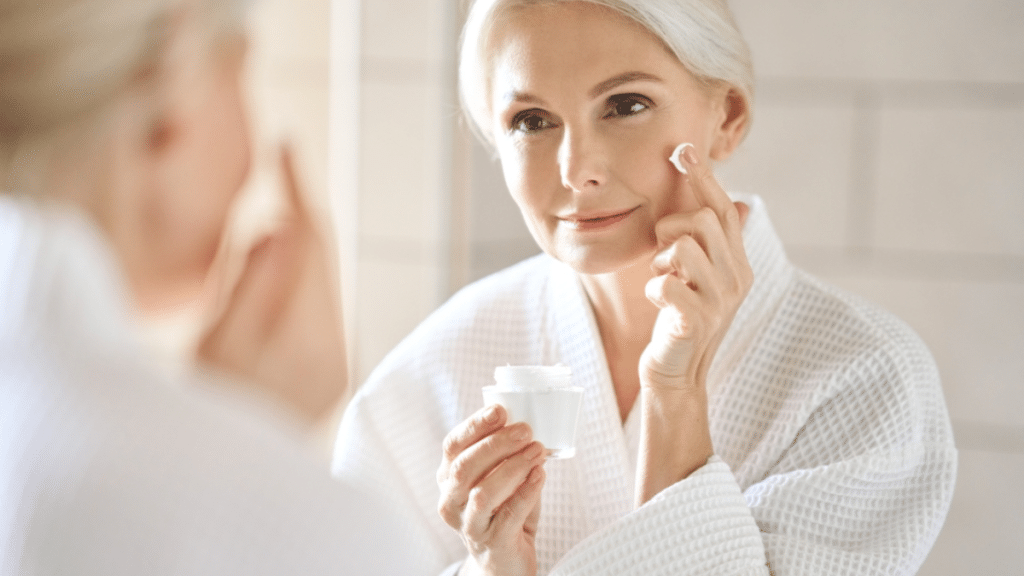Benny Shabtai, a Miami-based entrepreneur, has been a pioneering figure in the luxury jewelry and skincare industry for over four decades. As the CEO of Di Modolo International, he has brought meticulously crafted, high-end jewelry to a discerning clientele. Additionally, his leadership of Botanika Life underscores his expertise in the high-end wellness sector, where he has developed premium CBD skincare and wellness products featured in world-renowned venues such as the Ritz Carlton, MGM, and Waldorf Astoria. With a deep understanding of consumer trends and luxury product innovation, Shabtai provides valuable insights into the evolving anti-aging skincare market.
Various studies have shown that Americans want to live healthier lives. There are many different ways to improve overall health, such as eating a healthier diet and exercising more frequently. A study from NCSolutions, a consumer-packaged goods advertising company, found that more than half of Americans are interested in trying new products, including skincare products, if they contribute to a healthier, more sustainable lifestyle. Women in the United States are especially interested in anti-aging health products.
Anti-aging medicine is an emerging field of medical science that seeks to address underlying causes of aging and mitigate symptoms of age-related conditions. The goal of all anti-aging medicines and related products is to extend the natural human lifespan and to maintain the body’s more youthful characteristics, such as skin elasticity and the skin’s ability to retain moisture.
Of course, anti-aging medicines and products do not actually prevent the body from aging. Anti-aging is sometimes promoted using terms such as “age-defying” or “aging gracefully.” However, a consumer study from The Benchmarking Company (TBC), an industry-leading consumer perception testing company, has found the majority of women are more comfortable with the term “anti-aging.”
More importantly, the TBC study found that seven out of 10 American women have purchased or used an anti-aging product at least once. More than half of women own and regularly use a minimum of three products that use anti-aging terminology. More than three-quarters of these women use anti-aging medicines and products to achieve healthier, more youthful skin with fewer lines and wrinkles. Similarly, 72 percent of women used anti-aging products to achieve firmer skin. Other common reasons for using anti-aging medicines, according to the study, included better skin hydration, increased skin elasticity, and protection against sun damage.
Furthermore, the TBC study indicates the anti-aging market will continue to expand for years to come. The age at which individuals have started purchasing and using anti-aging products has fallen with each generation: while Millennials and older Americans have traditionally started using anti-aging medicines around the age of 35, Gen Z consumers have started purchasing these products as early as age 23.
That said, companies cannot place an “anti-aging” label on just any product and expect consumers to start lining up. Americans are shrewd when it comes to anti-aging medicines: 81 percent of individuals interested in anti-aging health benefits want brands to clearly communicate effective, age-appropriate results for each product. A comparable amount of users believe brands should not use any Photoshopping when demonstrating the results of anti-aging products, and nearly three-quarters of consumers believe brands should not use spokespeople with appearances that cannot be achieved through the use of the product in question.
On the same note, consumers are not willing to simply take anti-aging brands at their word. Instead, they desire additional data from independent research groups that confirm that the anti-aging products work as advertised. This should not come as a surprise to brand leaders, as 58 percent of women said they were unsatisfied with their current anti-aging facial skin care regimen. This dissatisfaction was seen in many areas, including fine line and wrinkle reduction, improved elasticity, and balanced complexion. About 75 percent of women said they would pay more for anti-aging products that delivered on all of the promised health benefits.
